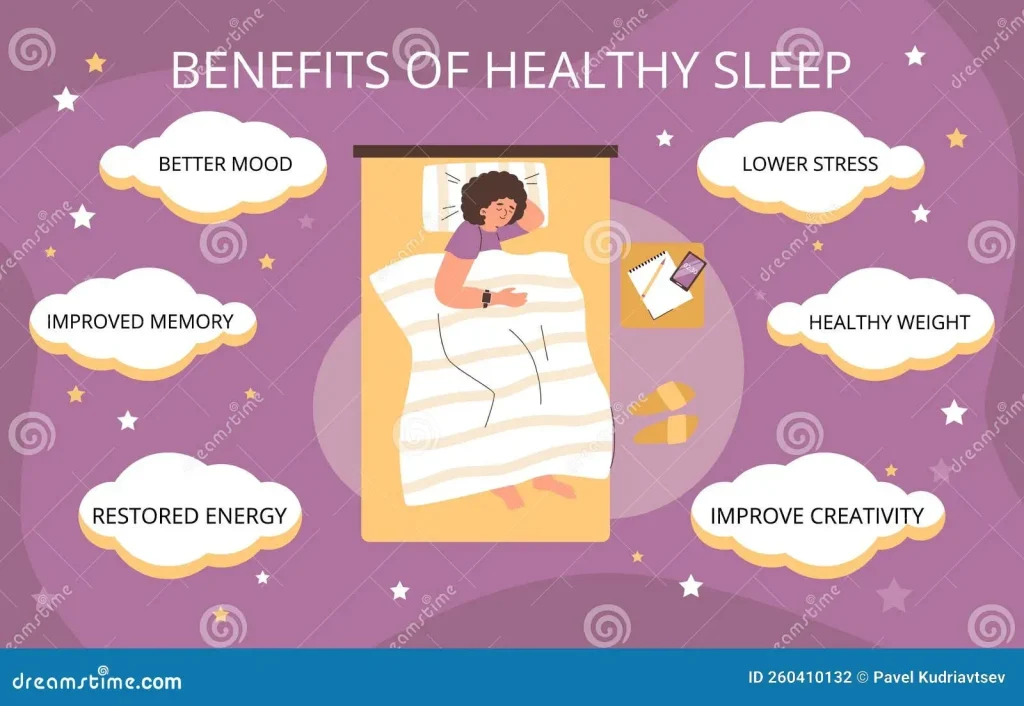Sleep Health is a foundational pillar of overall well-being, shaping daily performance, mood, and long-term vitality, and it influences how alert you feel in meetings, how you handle stress, and how your body repairs itself while you sleep, including how you recover after demanding days and how you regulate appetite and energy through the hours of darkness. Although often in the background, meaningful health outcomes hinge on a restorative night that primes the body for the day ahead and supports mood, energy, and physical recovery, setting the stage for sharper focus at work, quicker recovery after workouts, and a steadier immune response across seasons. This article explores how better rest supports immune function and metabolic balance, offering practical, research-backed tips for better sleep that can be implemented in as little as a few minutes each day, such as breathing exercises before bed, minimizing disturbances in the sleep environment, and establishing a gentle cue to wind down. A clear understanding of circadian rhythm and the quest for quality sleep helps explain why small changes in routine yield meaningful benefits, whether you shift bedtimes, dim lights, or adjust caffeine timing, and how these adjustments ripple through energy, mood, and overall daytime performance. Finally, commit to consistent sleep duration and a calming pre-sleep routine to cultivate resilience, focus, and steadier daytime performance, while recognizing that individuals vary in the exact hours they need and that gradual, sustainable tweaks beat abrupt shifts.
From a broader perspective, rest can be described using alternative terms such as restorative rest, overnight recovery, or a well-tuned biological clock that aligns daily activities with natural rhythms. These phrases signal the same core idea—that regular, refreshing sleep supports immune function, cognitive clarity, and energy throughout the day—without relying on a single label, and they invite readers to approach their routines with flexibility and personal tailoring.
Sleep Health and Circadian Rhythm: Tips for Better Sleep and Quality Sleep
Sleep Health and the circadian rhythm are deeply connected. When you prioritize consistent bedtimes and wake times, your sleep duration becomes more predictable, and you’re more likely to experience quality sleep that restores the brain and body. This alignment supports the broader link between sleep and health, boosting immune function, mood, and daytime resilience.
To put this into practice, try practical tips for better sleep: maintain a regular schedule, create a wind-down routine, and keep your bedroom cool, dark, and quiet. By consistently nurturing your circadian rhythm, you’re not just chasing longer hours—you’re cultivating quality sleep that improves focus, energy, and overall health.
Sleep Duration, Environment, and Daily Resilience: Supporting Immune Function and Mood
Focusing on sleep duration means prioritizing long, uninterrupted nights that support immune function and mood regulation. While hours matter, the quality of those hours—deep sleep continuity and minimal awakenings—ensures the brain and body recover fully. Consistency around bedtime also helps the circadian rhythm stay aligned, which translates into steadier energy and fewer daytime crashes.
To optimize sleep duration and the sleep environment, consider daytime activity, light exposure during the day, and a cooling, dark room at night. Limit caffeine in the afternoon, avoid heavy meals close to bedtime, and create a predictable wind-down that cues the body for sleep. These steps reinforce quality sleep, support sleep duration goals, and contribute to immune health and mood stability.
Frequently Asked Questions
How does Sleep Health influence circadian rhythm and sleep duration, and what steps can I take to optimize it?
Sleep Health encompasses sleep duration and quality, plus timing and consistency, shaping immunity, mood, and energy. For optimal Sleep Health, aim for 7–9 hours most nights, keep a consistent bed and wake time to support your circadian rhythm, and prioritize quality sleep by reducing disturbances. Build a wind-down routine, set a cool, dark sleep environment, and limit caffeine late in the day. Regular daytime activity and morning light further reinforce circadian alignment and improve sleep quality and duration.
What practical tips for better sleep are most effective for Sleep Health, quality sleep, and circadian rhythm?
Tips for better sleep to boost Sleep Health include: set a consistent bed and wake time to stabilize circadian rhythm; create a calming wind-down routine and optimize your sleep environment (cool, dark, quiet) for quality sleep; limit caffeine in the afternoon and avoid heavy meals near bedtime; get regular daytime activity and morning light to reinforce circadian signals; minimize evening blue-light exposure; address sleep-disordered breathing if present. Implementing these steps improves both sleep duration and quality over time.
| Aspect | Key Points | Impact / Why It Matters |
|---|---|---|
| What Sleep Health Is | Sleep Health encompasses quality, duration, timing, and consistency of sleep. It goes beyond hours to include restoration of brain/body, hormone regulation, recovery, and preparation for tomorrow. | Strong Sleep Health links to fewer accidents, better immune surveillance, improved mood, sharper cognition, and lower chronic disease risk; disruption can impair metabolism and immune responses. |
| Sleep Duration & Circadian Rhythm | Adults commonly need about 7–9 hours per night (individual variation). Going to bed and waking up around the same time stabilizes the circadian rhythm, which governs alertness, appetite, and energy. | Proper duration and timing promote steady energy and mood; misalignment increases daytime fatigue and irritability. |
| Sleep & Immune Function | Deep, restorative sleep supports immune regulation: cytokine and antibody production help fend off infections and balance inflammation. | Chronic sleep loss lowers immune efficiency and can affect vaccine responses, increasing susceptibility to illness. |
| Sleep, Mood & Cognition | Adequate rest supports emotional regulation, reduces anxiety/depressive symptoms, and enhances decision-making and cognitive flexibility. | Poor sleep elevates emotional reactivity and impairs problem-solving, creativity, and resilience. |
| Metabolism & Energy Balance | Sleep health influences appetite hormones (ghrelin/leptin) and affects insulin sensitivity and glucose tolerance. | Inadequate sleep can drive hunger, cravings, and weight/metabolic risks over time. |
| Sleep Duration vs Quality | Duration is how long you sleep; quality is depth, continuity, and how refreshed you feel on waking. | 8 hours in bed may still feel unrefreshed if sleep is fragmented; aim for a balance of sufficient duration and high-quality sleep. |
| Tips for Restful Nights |
|
These practices support longer, more restorative sleep and reinforce circadian alignment, boosting overall Sleep Health. |
| Circadian Rhythms & Sleep Health | The circadian rhythm is a 24-hour internal clock guiding sleep-wake cycles, hormones, and metabolism. Disruptions from shift work, travel, or irregular schedules can impair Sleep Health. | Even small adjustments (morning light, consistent bedtime, reducing evening screens) can realign your clock and improve sleep quality over time. |
| Framework for Better Sleep | Adopt a sustainable approach that balances duration, quality, and circadian alignment with daily habits. | Start with a regular 7–9 hour window, a calming pre-sleep routine, and an optimized sleep environment, then align daytime exercise, meals, and stress management to support deeper, more restorative sleep. |
Summary
Table captured key points about Sleep Health.



